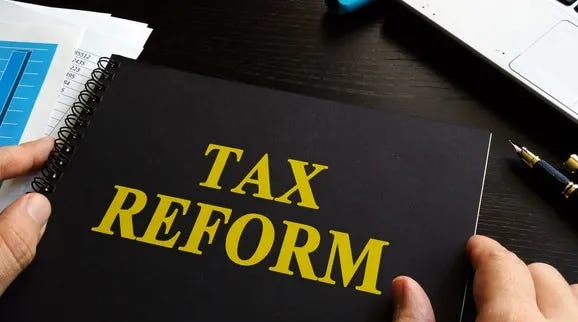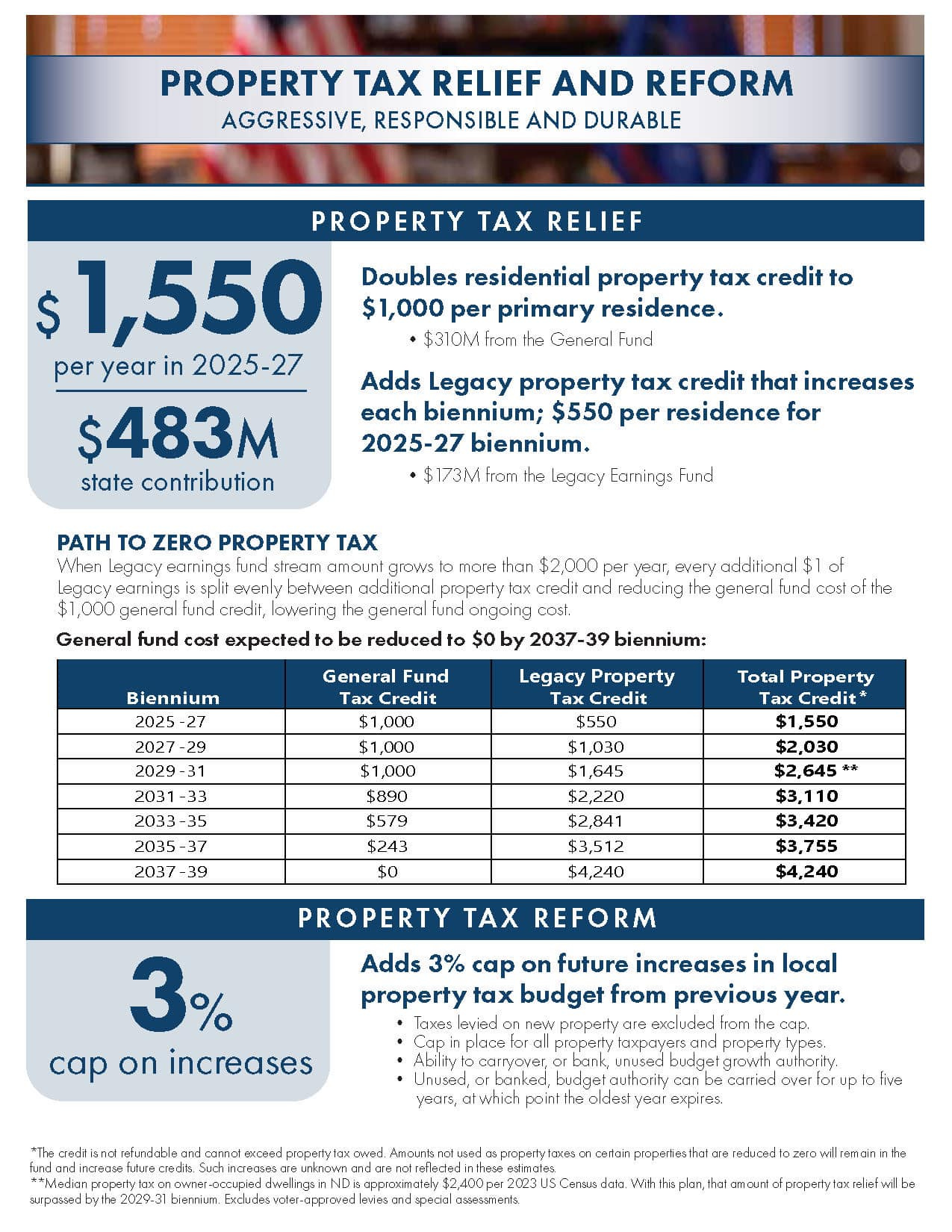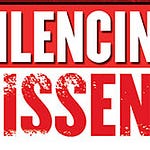This legislature session, those who have tracked the discussions on property have seen that it has been difficult to convince legislators to support long-term plans to systemically reform property tax. While Governor Armstrong’s original plan was strung-out over too long of a time frame, at least it was a framework for long-term changes.
Yesterday, the Senate Appropriations committee had their turn at chopping away at the plan. In another nearly two-hour long hearing, the committee managed to further reduce potential dollar benefit relief that the bill will grant property owners.
During the hearing, Governor Armstrong addressed the Senate Appropriations Committee, emphasizing the importance of HB 1176, which aims to provide property tax relief. He highlighted his extensive experience in the North Dakota Senate and his understanding of the oil and gas industry.
Armstrong stressed the need to focus on policy amendments that have a chance of success and to avoid unnecessary debates that could delay progress. He underscored the public's strong desire for property tax relief, particularly on primary residences, and expressed reluctance to divert Legacy Fund dollars to out-of-state property owners and businesses. The Governor urged the committee to prioritize the bill to meet the citizens' needs effectively.
"You are going to take Legacy Fund earnings and give it to out-of-state businesses and out-of-state land owners," Gov. Kelly Armstrong said of the amendments passed to lowering and cap a property tax credit.
Here is a summary of the meeting, as provided by the North Dakota Association of Counties:
The Senate Appropriations Committee held committee work on HB 1176 Thursday afternoon. HB 1176 is the property tax relief bill that includes a $1450 primary residence credit and caps local government from increasing the dollars they levy by 3%, it does allow political subs to exceed the cap with a majority vote.
Senate Majority Leader David Hogue and Senator Mark Weber brought five amendments forward for the committee to consider. Senator Tim Mathern also proposed an amendment. Two of the six were approved and are now included in HB 1176.
Primary Residence Credit is limited to no more than 75% of a taxpayer’s tax bill. Maximum relief is reduced to $1,250 and the credit may not be less than $500 as long as $500 or more is owed. Motion to Approve – PASSED
Legislative intent the 2027 Legislative Assembly should provide relief to additional property taxpayers. Motion to Approve – PASSED
Strengthens cap to 2% in 2025 for counties and park districts with populations over 20,000 (8 counties) and cities over 10,000 for year. Motion to Approve – FAILED
Eliminated ability for political subdivisions to vote to exceed the cap until 2028 primary or general election. Motion to Approve – FAILED
Allows townships to levy up to 36 mills without a cap. Motion to Approve – FAILED
Senator Mathern proposed an amendment to eliminate the caps in HB 1176. Motion to Approve – FAILED
Next Steps: HB 1176 now includes the amendments (1 & 2 listed above). The Senate is expected to vote on the amendments Monday and if those amendments are approved the bill in its entirety could be voted on Tuesday. Because the Senate changed the House bill, the House can decide to not accept the Senate’s changes and move the bill to a conference committee to work out the differences. In other words, this bill is far from being done.
The Senate also has several other property tax relief bills that include restrictions for local government that remain in the Senate Finance & Tax committee. It is unknown when they will be acting on those bills.
Argument Over Agriculture Property Tax Is Disingenuous
During the discussions all session, one of the big pushes has been to grant relief to farmers - which sounds like it is a fairness issue on the surface.
The problems is, farmers already get significant property tax exemptions on their property and have for over a hundred years as this 3-page document from the tax department shows.
These exemptions drastically reduce the share of the market value that gets taxed, so it is not a case of farmers being treated worse since they have been treated better for over a hundred years.
Amendments Set Up Conference Committee Fight
By amending the bill, assuming the amendments are accepted by the full Senate, a conference committee is likely to occur that would have the Senate and House hash out their differences. The danger with this is that the bill could be further weakened and diminished.
Legislators should start considering whether adding on provisions such as those in HB 1168 (which is still alive) would “sweeten the pot” for taxpayers.
This session is proving those who supported Measure 4 were right to be skeptical about just how serious legislators would be on the issue of property taxes.
The legislature has about 20-30 days left to prove them wrong.

















Share this post